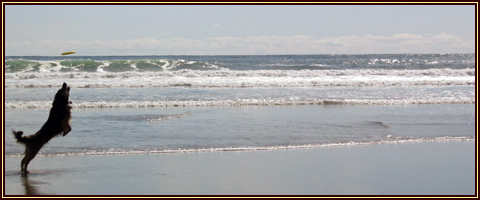A Guide To Feeding Your Pet
This article will discuss pet feeding and how to properly feed your pet to ensure they receive all the nutrition they need to live a long and healthy life. Most pet owners purchase their pet food from pet stores or supermarkets. However, more and more pet owners are resorting to make meals for their pets of feeding their pet raw food instead.
Some people believe that pets should only be fed raw food, as the animal would have eaten in the wild, in order for the pet’s nutrition to be “balanced” in a more natural way. There are many articles available which discuss the possibility that the man-made pet food of today and straying our pets from raw, natural food is the cause for so many diseases that are cropping up in our pets. It is believed that most of these diseases are nutrition-based due to the lack of raw meat and other nutrients in our pets’ diets.
However, veterinarians usually recommend a well-known and trusted brand of pet food that has been specifically designed for your pet. This is where pet feeding can become difficult. Because the quality of pet food can differ depending upon which brand you get, it’s a good idea to look at the animal nutrition offered and make your choice based off of that. For instance, Science Diet dog food and Purina dog food are very well-known and trusted brands.
Pet Feeding for Dogs: Commercial brands of pet food for dogs include canned food, dry food and semi-moist food. Up to 50% of your canine’s diet can come from carbohydrates such as grain. Vets do not recommend semi-moist food because of the additives and chemicals in them. Adult dogs may be fed once or twice per day, while puppies require more frequent feedings. There are brands that specifically specialize in all natural dog food, so if you decide you do want to feed your dog a more natural diet, you may look into it.
There are some foods in which you should NEVER feed your dog. The following are some: onions, garlic, plant leaves (potato, tomato, etc.), mushrooms, persimmons, chocolate, grapes or raisins, or macadamia nuts. Some people mistakenly believe that human vitamins are suitable to dogs, but this is absolutely incorrect. There are pet vitamin supplements available, which you can usually purchase through your vet or at a pet supply store.
Pet Feeding for Cats: Cat food, as with dog food, comes in three forms: canned, dry and semi-moist. Again, semi-moist is not recommended. Carbohydrates are not good for cats. Also, cats need relatively high water content in their food. Therefore, some canned food is good for indoor cats.
There are also foods which are unsuitable to feed to a cat, such as: dough that contains yeast, onions, mushrooms, plant leaves, garlic, sugary foods, raw eggs, salt, persimmons, macadamia nuts, and raisins/grapes. Regardless of the rumors that milk is good for cats, you should never feed a cat cow’s milk, as they cannot digest it properly. There are some brands of cat food which offer small bottles of milk, usually intended for kittens.







